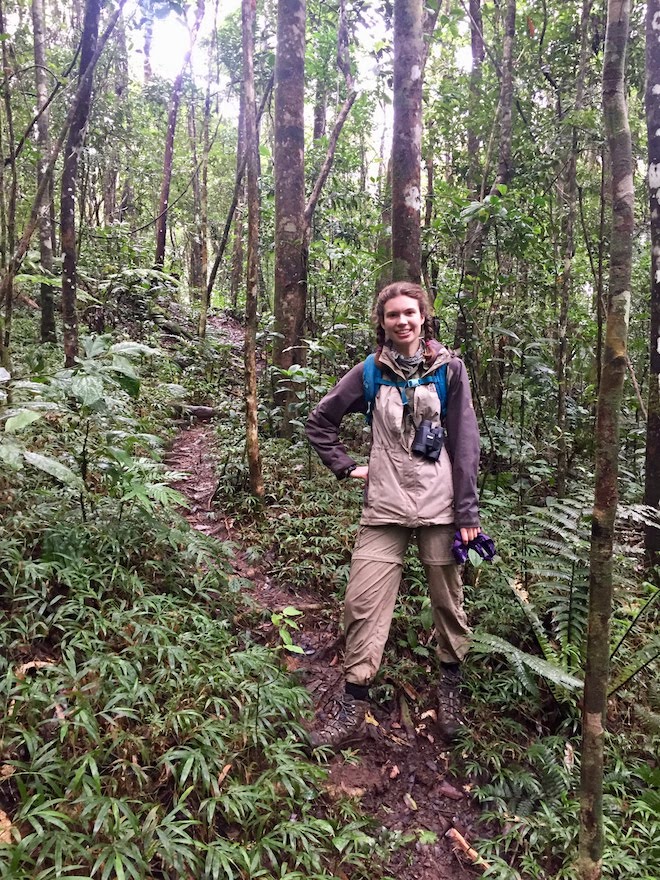If you have trouble getting up for your 9 a.m. class, imagine waking up before the sun rises. That's what Weinberg senior Nicolette McManus this summer to track the behavior of Madagascar's critically endangered black-and-white ruffed lemurs.
McManus spent two months at three different sites tracking the behavioral patterns of lemurs and collecting their fecal samples “to see how the environment impacts the species as a whole.” She studied lemurs at a national park, a site recovering from heavy logging and a site of a coffee plantation.

McManus in Madagascar. Photo by Nina Beeby / North by Northwestern
Since coming back to campus, McManus has been analyzing her data.
“The biggest thing I found was in the [degraded] sites, the lemurs spent a lot more time traveling over feeding or resting,” she said. “My thought is that since their food sources have been taken away or just recovering and not fully in bloom, they have to travel farther for their specific food requirements.”
With the fecal samples, McManus is performing microbiome analysis to learn more about the health of the different groups of lemurs, including information about their immune systems and how they absorb nutrients. Throughout the rest of the year, McManus will analyze data and compile her results for her honors thesis in environmental science.
After taking a class on primatology, or the study of primates, McManus developed the idea for her research with the help of Professor Katherine Amato. Now, Amato is McManus’ research advisor.
Although putting together the project was a challenge, McManus said she benefited from “having the opportunity to go to a place like Madagascar and experience something I’ve always wanted to try. I’ve always dreamed of doing field research, but I’ve never know if that was something that I was really going to like.”
After graduation, McManus hopes to continue field research, whether it’s collecting data for her projects or other researchers’ projects.
“I figured I’ve got a lot of energy, you know. I’m young,” she said. “I’ll do that before I tired out a little bit more.”